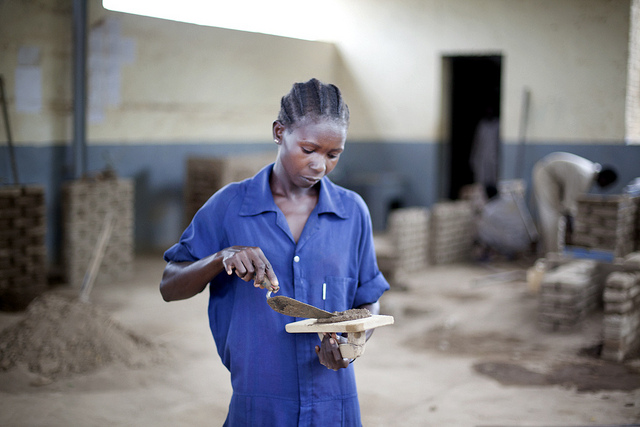
Rebecca is training to become the first woman mason in her South Sudan community through an Oxfam program (Oxfam East Africa-flickr)
Gains come, but destabilization fears linger
Meanwhile, the economy is still hanging by a thread. Even after years of slow recovery, a single destabilizing event could mean we risk losing all the progress we’ve made. Ahead of Davos this year, the World Economic Forum conducted an annual survey identifying the top 10 global risks for 2014. They named “fiscal crises in key economies” as number one. Number 2? Structural unemployment.
Why, then, when the world’s economy is still so unsteady, have we not recognized women as the massive and still largely untapped audience and financial recovery resource that they are? Why haven’t we had calls to arms like Rosie the Riveter, to help bring our economies back from the brink? Why haven’t we invited every able-bodied woman to give her all, and why haven’t we devised programs to make their contributions count?
What’s holding everyone up? To be sure, closing the gender gap has no easy fix. The political and cultural barriers are enormous; but wouldn’t improving the bottom line be an incredible motivator for finding solutions?
Remember when environmentally sound products and sustainable practices and corporate social responsibility seemed oh-so-fluffy? Once those efforts gained consumer support and businesses established a sound economic approach to integrating them, they’ve become standard practice, complete with executive titles and fully staffed departments.
A Way Forward
There are already powerful voices supporting this effort, from Barack Obama in his state of the Union to the OECD and World Bank. International Women’s day was March 8, and the month has been designated National Women’s History Month. And events like Women in the World continue to shine a light on this issue.

